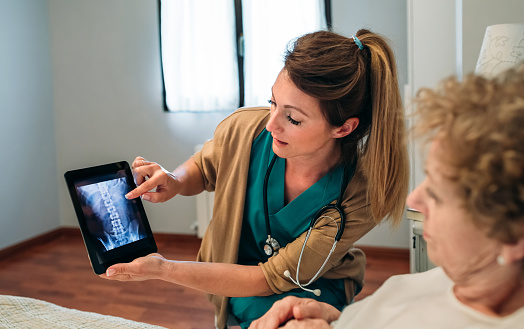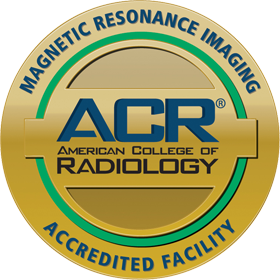
Have you been told that you should have a bone density scan? If you’re a postmenopausal woman or a man over the age of 50, and you’ve recently broken a bone, a bone density scan is a good idea. If your doctor hasn’t already ordered one, you might want to request one.
What does a bone density scan do? It’s the only test available that can diagnose osteoporosis before a bone is broken. The test lets you know if you have normal bone density, low bone density, also known as osteopenia, or osteoporosis. This is good information to have, because the lower your bone density is, the more likely you are to break a bone. Using bone density tests, your healthcare provider can establish whether you have osteoporosis, predict your chance of breaking a bone, and monitor the progress of your osteoporosis, to determine whether your bone density is improving, getting worse or staying the same. This is particularly useful when you’re taking medication for osteoporosis and want to know if it’s working.
The National Osteoporosis Foundation (NOF) recommends using a DXA machine to test the bone density of the hips and spine. DXA stands for dual energy x-ray absorptiometry, and this non-invasive test is painless. It only takes about 15 minutes, during which time the patient remains fully clothed, as long as no zippers or buttons get in the way of the exam. A central DXA uses no needles or instruments placed on the body, and it requires very little radiation.
Why scan the hip and spine? People with osteoporosis have a greater chance of fracturing the bones of the hip and spine, and broken bones in those areas can be very serious. By scanning the hip and spine, your health care provider can predict the likelihood that you’ll break one of these bones in the future. If there’s some reason your hip and spine cannot be scanned, though, there are also peripheral scans, which test the density of the lower arm, wrist, finger, or heel. These tests can help inform your provider as to whether more testing is advisable, and can be performed even on larger people, who may not conform to the DXA machine’s weight limit.
Certain people fall into categories recommended by NOF for a bone density scan. These include:
- Women, age 65 or older
- Men, age 70 or older
- Anyone over the age of 50 who has broken a bone
- Postmenopausal women who have additional risk factors
- Men between the ages of 50-69 with risk factors
- A person with an x-ray of the spine that shows a break or bone loss
- Anyone with back pain that indicates a possible break
- Someone who has lost a ½ inch or more of height in one year
- Anyone who has lost more than 1 ½ inches from his or her original height
If you’d like more information about scheduling a bone density scan, call Salem Radiology today. Established in 1974, we are the largest radiology group in the area and offer a depth of specialization among our doctors that you would expect to find only at major university medical centers. To learn more or schedule an appointment, call (503) 399-1262 or contact us through our website.

